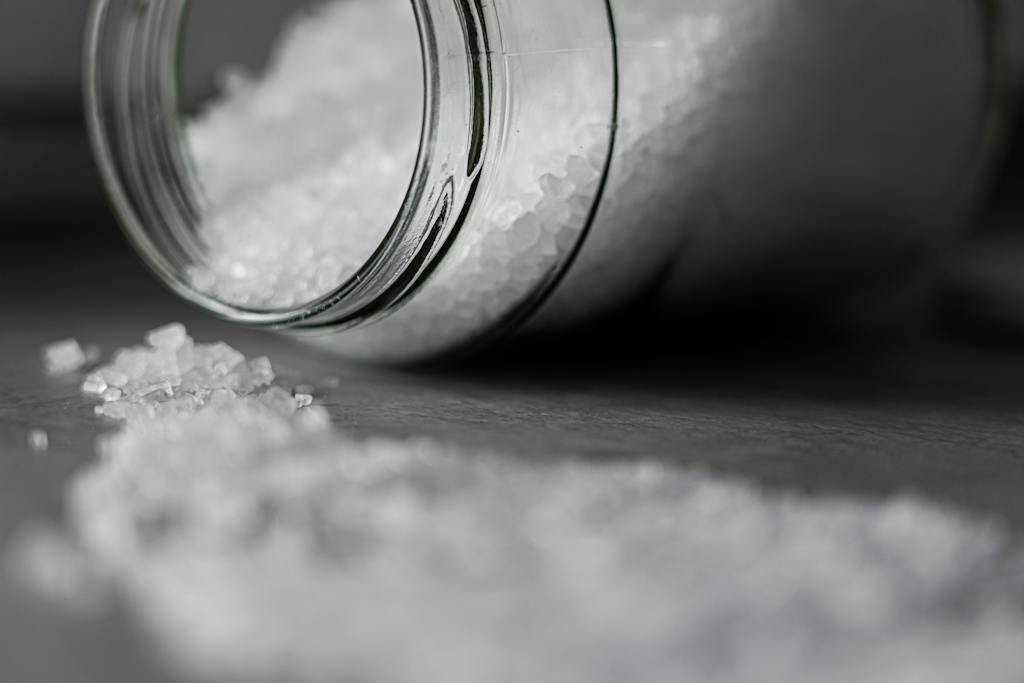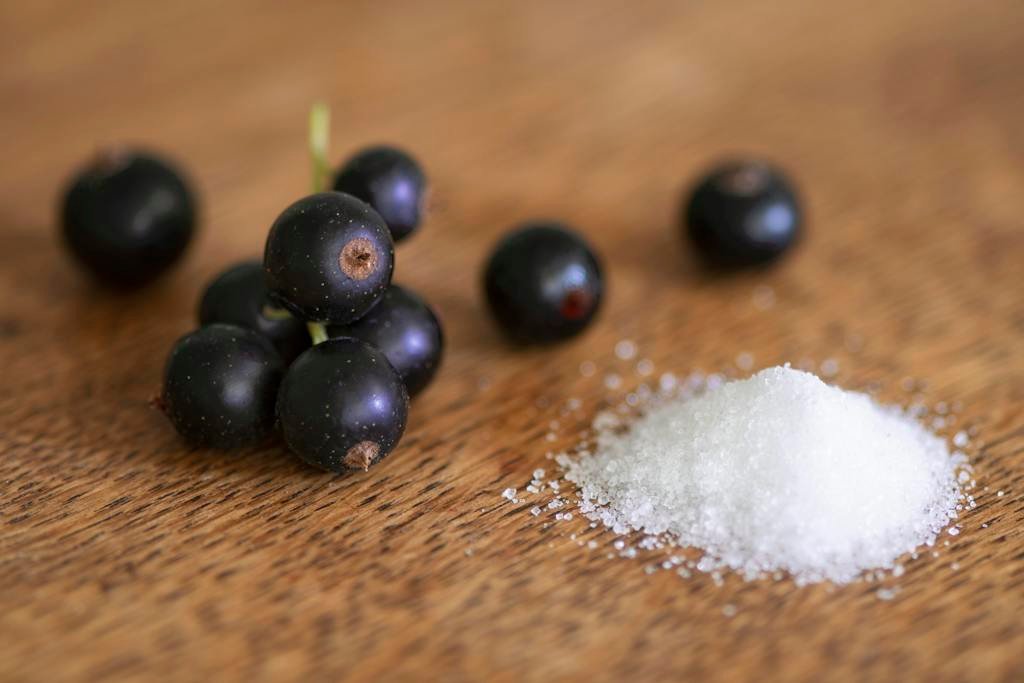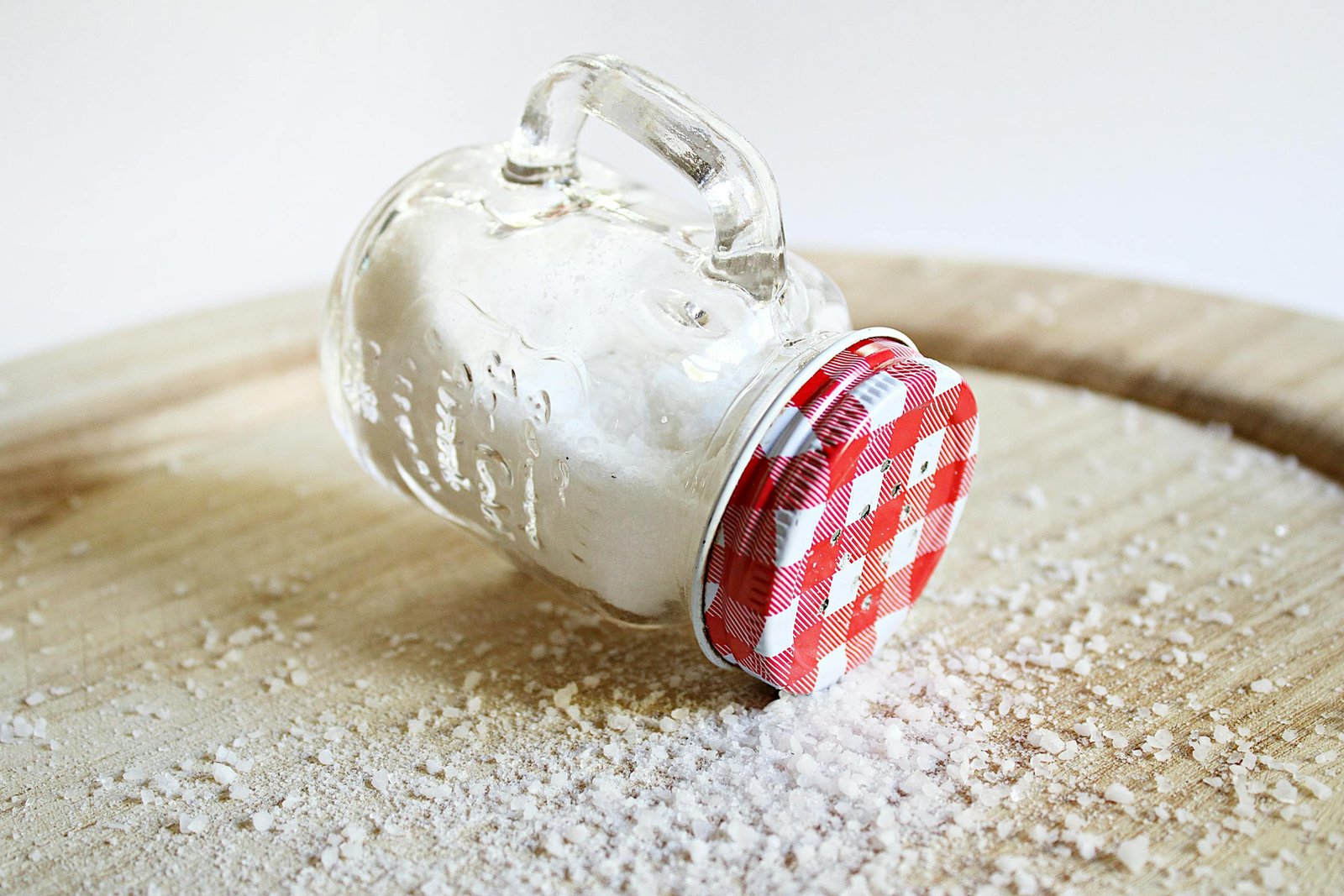Drinking Water to Counteract Too Much Sodium
There are some affiliate links below, but they are all products I highly recommend. For more info, view my disclosure here.
Are you feeling bloated and sluggish after consuming too much sodium? You’re not alone. But don’t worry, there’s a simple solution: drink more water.
We’ll explore the importance of hydration and how it can help flush out excess sodium from your body. We’ll also provide tips for increasing your water intake and incorporating hydrating foods into your diet.
Get ready to feel refreshed and revitalized with the power of hydration.
The Importance of Hydration
You should make sure to drink enough water to stay properly hydrated. Water is essential for your overall health and well-being. It plays a crucial role in various bodily functions, including regulating body temperature, flushing out toxins, and aiding in digestion. When you don’t drink enough water, you can become dehydrated, which can lead to a range of negative effects on your body.
Dehydration can cause fatigue, dizziness, headaches, and muscle cramps. It can also affect your cognitive function and mood. When you’re dehydrated, your body has a harder time performing at its best. It’s important to remember that thirst isn’t always a reliable indicator of hydration. By the time you feel thirsty, you may already be slightly dehydrated.
To ensure you’re properly hydrated, aim to drink at least eight glasses of water per day. However, your water intake may vary depending on factors such as your activity level, climate, and overall health. It’s also important to listen to your body and drink water whenever you feel thirsty. If you engage in intense exercise or spend time in hot weather, you may need to increase your water intake to stay properly hydrated.

Understanding Sodium and Its Effects
Understanding the effects of sodium can help you make informed choices about your diet and health. Sodium is a mineral that’s essential for various bodily functions, such as maintaining fluid balance, transmitting nerve impulses, and contracting muscles. However, consuming too much sodium can have detrimental effects on your health.
One of the main effects of excess sodium intake is increased blood pressure. When you consume too much sodium, your body retains more water to dilute the concentration of sodium in your blood. This extra water puts pressure on your blood vessels, leading to increased blood pressure. High blood pressure is a risk factor for heart disease and stroke.
Another effect of consuming too much sodium is water retention. Sodium attracts water molecules, causing your body to hold onto excess water. This can lead to bloating and swelling, particularly in your hands, feet, and legs. It can also contribute to weight gain.
In addition to these effects, excessive sodium intake has been linked to an increased risk of kidney stones, osteoporosis, and stomach cancer.
How Water Helps Flush Out Excess Sodium
Flushing out excess sodium is an important function that water performs in your body. When you consume too much sodium, whether it’s from salty foods or processed snacks, your body needs to eliminate the excess to maintain a healthy balance. That’s where water comes in. It acts as a natural diuretic, helping your kidneys flush out the extra sodium through urine.
By drinking an adequate amount of water, you can support this process and prevent the negative effects of high sodium levels.
Water works by diluting the concentration of sodium in your bloodstream. As you drink water, it enters your bloodstream and mixes with the sodium, reducing its concentration. This prompts your kidneys to produce more urine, which contains the excess sodium. When you urinate, the sodium is expelled from your body, helping to restore the proper balance.
It’s important to note that drinking water alone may not be enough to offset excessive sodium intake. It’s also crucial to reduce your sodium intake by making healthier food choices and reading nutrition labels. By combining these strategies, you can effectively manage your sodium levels and promote overall health and well-being.

Tips for Increasing Water Intake
To stay hydrated and support your body’s functions, aim to incorporate more fluids into your daily routine. Drinking enough water is essential for overall health and well-being. Start your day by having a glass of water as soon as you wake up. This will kickstart your hydration and set a positive tone for the rest of the day.
Throughout the day, keep a water bottle with you and take sips regularly. If you find plain water boring, try infusing it with fruits like lemon, cucumber, or berries for a refreshing twist. Another way to increase your fluid intake is by consuming more fruits and vegetables that have high water content, such as watermelon, oranges, and cucumbers.
Herbal teas and decaffeinated beverages count towards your fluid intake as well. Make it a habit to drink a glass of water before each meal to not only hydrate yourself but also aid in digestion. Lastly, listen to your body’s signals and drink water whenever you feel thirsty.
Incorporating Hydrating Foods Into Your Diet
When it comes to increasing your fluid intake, incorporating hydrating foods into your diet is a great way to stay hydrated.
Not only do these foods provide essential nutrients, but they also contain a high water content, helping to keep you hydrated throughout the day.
One such hydrating food is watermelon. With its juicy flesh and high water content, watermelon isn’t only delicious but also a great source of hydration.
Other fruits like strawberries, oranges, and grapes are also packed with water and can help boost your fluid intake.
Vegetables like cucumbers, celery, and lettuce are hydrating options too. Adding these veggies to your salads or snacking on them throughout the day can significantly contribute to your overall fluid intake.
Soups and broths made with water-based ingredients like tomatoes, carrots, and spinach can also help keep you hydrated.







